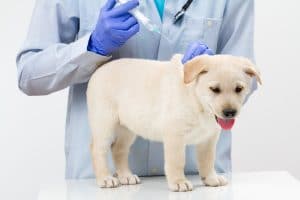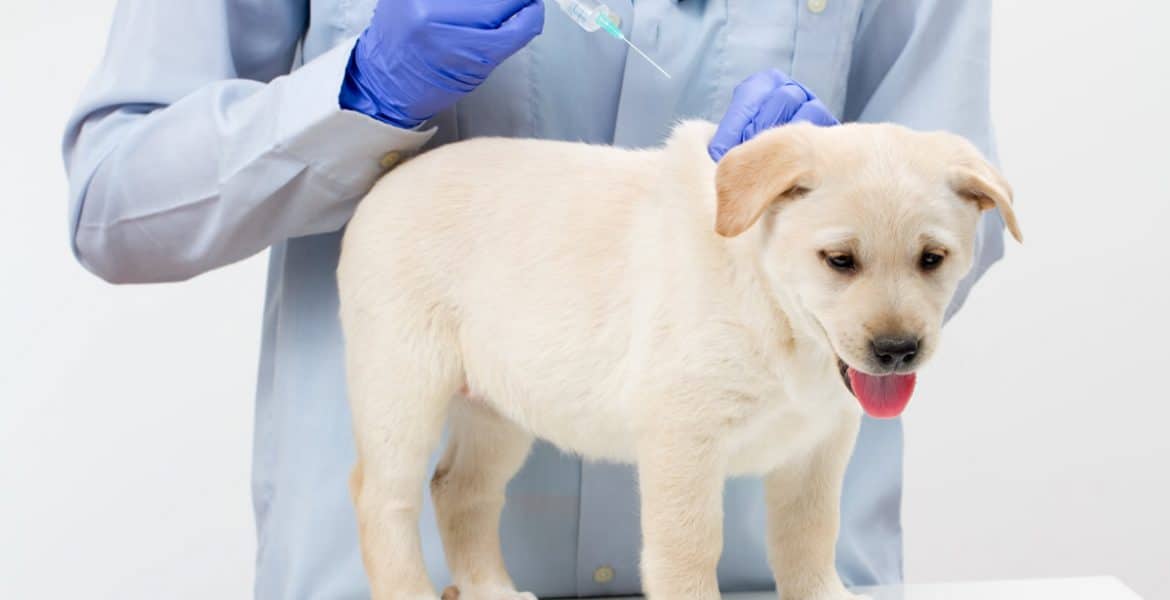
What is Parvovirus?
Parvovirus or parvo, is a severe and highly contagious disease that affects dogs. It is an infection most often affecting puppies six to twenty weeks of age, although an unprotected dog of any age can get the virus. Presenting as either a cardiac or intestinal form, the virus attracts the cells within these area of the dog, compromising their function. Early diagnosis of the parvovirus is important since it is highly contagious to all canines.
Contamination from one dog to another is most common through affected faeces. The virus is discarded through the faeces of an infected dog and can survive in the environment for years. If another animal is in contact with the faeces one way or another, which is eventually ingested, the disease is then passed on to that dog. Parvo does not, however, affect cats or humans but is only specific to dogs.
What Symptoms will my dog present with if they have Parvo?
Dogs that develop this illness, will usually show symptoms within 3-11 days of coming in contact with the virus. The most common symptoms of parvovirus in dogs can be very similar to other diseases that affect dogs. These symptoms include:
- vomiting;
- high fever;
- a loss of appetite;
- diarrhea, usually containing blood and emitting a foul odour;
- depression;
- lethargy.
With these symptoms your dog is very quickly at risk of dehydration and the dog will often appear in pain with a hard, distended abdomen.
Treating Parvo in Dogs
The sooner you can detect the condition in your dog, the better the outcome will be. Most often, along with a veterinary clinic visit and thorough medical examination, prescribed tests may include a complete blood count, a blood serum test and a faecal exam.
Treatment for parvovirus may begin with subcutaneous fluids since most dogs with the disease are highly dehydrated with an electrolyte imbalance. Hospitalization is required in more serious cases and along with the intravenous fluids to replace fluids and electrolytes, the dog may be administered antibiotics and anti-vomiting medications. Some dogs may also necessitate a transfusion of plasma.
Other therapy options depend on your doctor’s recommendations. The antibiotics are most often given in order to prevent any life-threatening or bacterial infections that may subsequently lead to the demise of the pet. The earlier you can get a diagnosis and treatment by your veterinarian, the better the prognosis will be for your dog. Roughly 80 to 90 per cent of dogs treated early can live a normal, happy and healthy life. It is most often advised that you should not give your dog food or water until the vomiting and diarrhea is under control.
Prevention is Better than a Cure!
The best treatment option for parvovirus is preventing the disease in the first place.
It is recommended that all puppies are vaccinated by 16 weeks of age with two vaccinations provided 3/4 weeks apart. Annual booster vaccinations are then provided through the adult dog’s life, ensuring that they continue to be protected. Although a very serious disease should your dog come in contact with the virus, it is a preventable condition, that with regular vaccinations should never become a problem to your valued pet!


